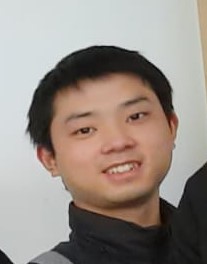News: ABSPIE recent initiatives
Warwick-China Scholarship Council (CSC) Joint Research Scholarship nomination for Wanzi Su
The lab is pleased to announce that our PhD student Mr. Wanzi Su has been nominated for a Warwick-China Scholarship Council Joint Research Scholarship for 2023/24. The China Scholarship Council (CSC) and The University of Warwick have a longstanding collaborative agreement through which a significant number of outstanding Chinese scholars have been able to pursue doctoral studies in a wide range of academic disciplines at the University. CSC Scholarship awards the top 30 Chinese students who are eligible and applying for this scholarship.
Led by 1st year PhD student Wanzi Su with support from Assistant Professor, Dr. Davide Piaggio, Associate Clinical Professor, Dr. Damon Hoad, and Lab Co-Director Professor Leandro Pecchia, this funded project aims investigate a set of neurodegeneration biomarkers detectable by the analysis of ophthalmological signals and deploying a personalisable toolbox/app both for enabling and improving current ophthalmological research tools and eHealth approaches.
With the trend of an aging population, an increasing number of people are affected by neurological diseases, causing a tremendous number of death and disabilities. Not only just suffering for the patient and their family, it is also a huge burden to society, the economy, and the healthcare system, placing a hideous gap between low- and high-income regions. Common neurological examinations rely on traditional medical practice and subjective assessment while the state of the art now is exploring automated eye feature evaluation.
Automated eye feature evaluation is an objective and non-invasive biomarker of neurocognitive status, that can be used to overcome these challenges. On the one hand, automated eye feature evaluation is not prone to human error compared to subjective assessment (e.g., testimony from patients, family members, or care providers). On the other hand, it is more reproducible and affordable than the analysis of invasive biomarkers (e.g., blood or cerebrospinal fluid). Technology for automated eye feature evaluation is becoming increasingly popular with the development of accurate, cost-efficient, portable, and user-friendly eye trackers that can be utilised in various scenarios.
This scholarship will certainly allow Wanzi to carry out this important piece of research and kickstart his early academic career.

